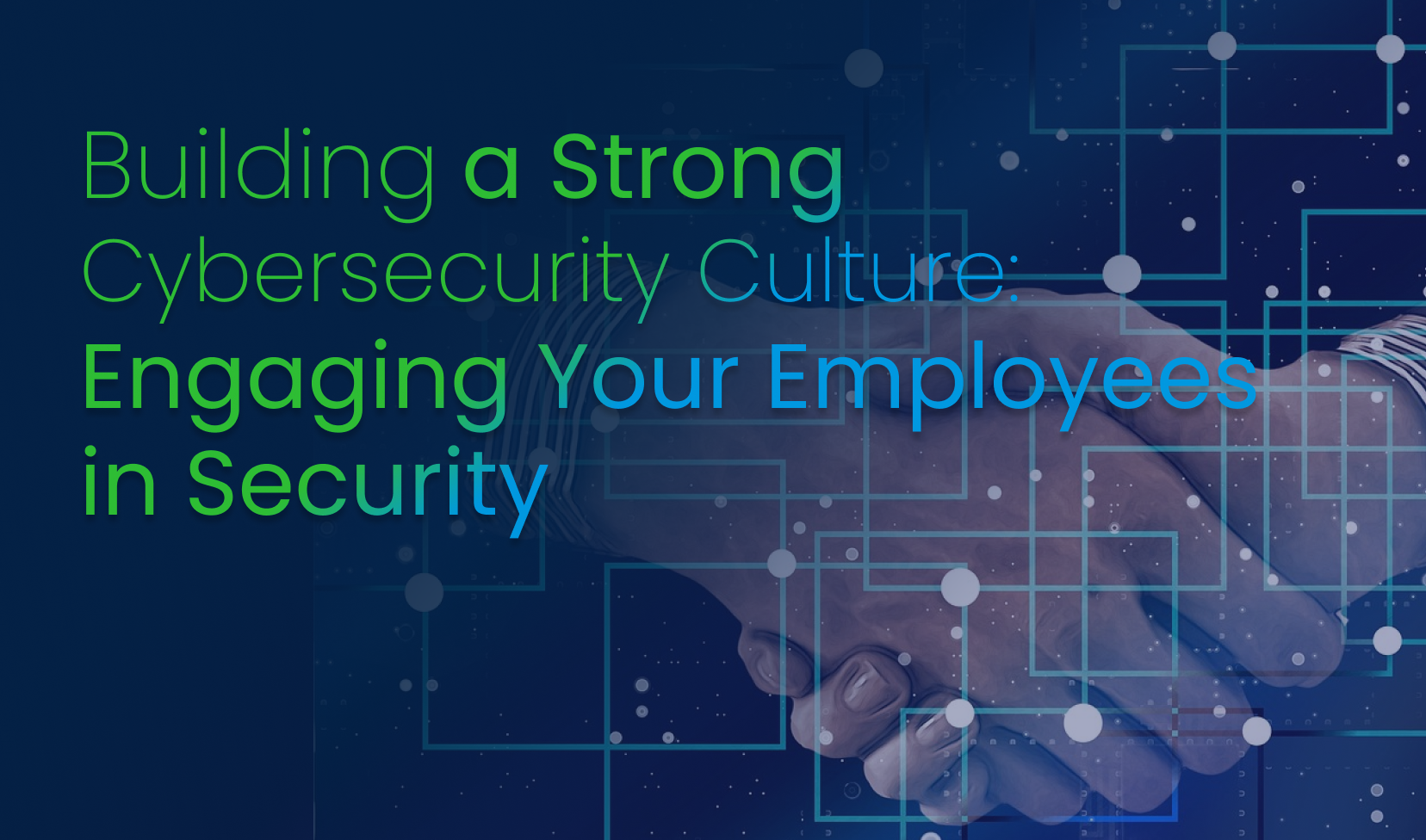In today’s digital landscape, cybersecurity has become a critical concern for businesses worldwide. The ever-evolving threat landscape demands a proactive approach to protect sensitive data and ensure business continuity. However, implementing robust cybersecurity measures is not solely the responsibility of IT departments; it requires the active involvement and awareness of every employee within an organisation. This blog will explore the importance of building a strong cybersecurity culture and provide valuable insights on engaging employees in security practices.
Understanding Cybersecurity Culture
Cybersecurity culture refers to the collective mindset, attitudes, and behaviours of employees regarding information security. It encompasses the knowledge, awareness, and adherence to security best practices throughout an organisation. A robust cybersecurity culture promotes a shared responsibility and empowers employees to identify and mitigate potential risks.
The Role of Employees in Cybersecurity
Employees play a crucial role in maintaining the overall security posture of an organisation. They are often the first line of defence against cyber threats. However, without proper education and engagement, they may unwittingly become the weakest link in the security chain. Therefore, it is vital to involve employees actively in cybersecurity initiatives.
Creating a Culture of Awareness and Education
To build a strong security culture, organisations should prioritise awareness and education programs. Regularly communicate the importance of cybersecurity, the impact of data breaches, and the role each employee plays in safeguarding sensitive information. This fosters a sense of responsibility and empowers employees to make informed decisions when it comes to security.
Implementing Effective Employee Training Programs
Comprehensive and ongoing employee training programs are essential to equip staff with the knowledge and skills needed to identify and respond to potential threats. Conduct interactive training sessions, workshops, and simulations that simulate real-world scenarios. Engage employees through practical examples and emphasise the importance of secure practices both at work and in their personal lives.
Fostering a Secure Work Environment
Creating a secure work environment involves establishing clear policies and procedures that promote security-conscious behaviours. Encourage employees to lock their workstations when away, avoid sharing sensitive information through insecure channels, and use strong, unique passwords. Foster a culture where security is integrated into daily routines, making it a natural part of every employee’s workflow.
Encouraging Reporting and Incident Response
Employees should feel encouraged and supported when reporting security incidents or potential threats. Establish a clear incident response process that allows employees to report concerns without fear of repercussions. Respond promptly to reported incidents, investigate them thoroughly, and take appropriate actions to mitigate risks. This builds trust and reinforces the notion that security is a top priority within the organisation.
Strengthening Security Policies and Procedures
Regularly review and update security policies and procedures to align with the evolving threat landscape. Ensure that policies are easily accessible, clearly written, and tailored to the specific needs of the organisation. Regularly communicate policy updates and reinforce their importance to employees.
Leveraging Technology for Enhanced Security
Implementing robust cybersecurity technologies is crucial for mitigating risks. Utilise advanced threat detection systems, firewalls, secure email gateways, and encryption tools to protect sensitive data. Implement multi-factor authentication to strengthen access controls. Regularly update software and patch vulnerabilities to prevent exploitation by cybercriminals.
The Benefits of Building a Strong Cybersecurity Culture
By building a strong security culture, organisations can enjoy numerous benefits.
- Enhanced protection against cyber threats: By establishing a strong cybersecurity culture, your organisation becomes better equipped to defend against various cyber threats. Employees who are educated and engaged in security practices are more likely to identify and report potential risks, helping to prevent security incidents and mitigate their impact.
- Reduced risk of data breaches and unauthorised access: A robust cybersecurity culture promotes secure practices throughout your organisation. This includes using strong passwords, implementing access controls, encrypting sensitive data, and adhering to secure communication protocols. By consistently following these practices, the risk of data breaches and unauthorised access to sensitive information is significantly reduced.
- Increased resilience and ability to respond to security incidents: With a strong cybersecurity culture in place, your organisation develops a proactive approach to incident response. Employees are encouraged to report security incidents promptly, allowing for swift action to mitigate risks and minimise potential damage. This resilience enables your organisation to recover more effectively from security incidents and maintain business continuity.
- Improved customer trust and confidence in your organisation’s security practices: In an era where data breaches and cyberattacks are prevalent, customers are increasingly concerned about the security of their information. By demonstrating a strong security culture, your organisation instils trust and confidence in your customers. This trust can positively impact your reputation and customer loyalty, setting you apart from competitors.
- Compliance with regulatory requirements and industry standards: Many industries have specific regulatory requirements and industry standards regarding data security and privacy. Building a strong cybersecurity culture helps ensure compliance with these requirements. By implementing security best practices, training employees, and regularly reviewing and updating security policies, your organisation can demonstrate adherence to these regulations and standards.
Conclusion
In conclusion, building a strong cybersecurity culture is vital for organisations aiming to protect their assets and maintain a robust security posture. By involving employees, fostering awareness, and implementing effective training programs, organisations can empower their workforce to become proactive guardians of sensitive information. Remember, cybersecurity is a collective responsibility that requires continuous effort and engagement from every individual within an organisation.
Ready to enhance your cybersecurity culture? Contact us today to get in touch with our experts and take the first step towards building a secure environment for your organisation.






